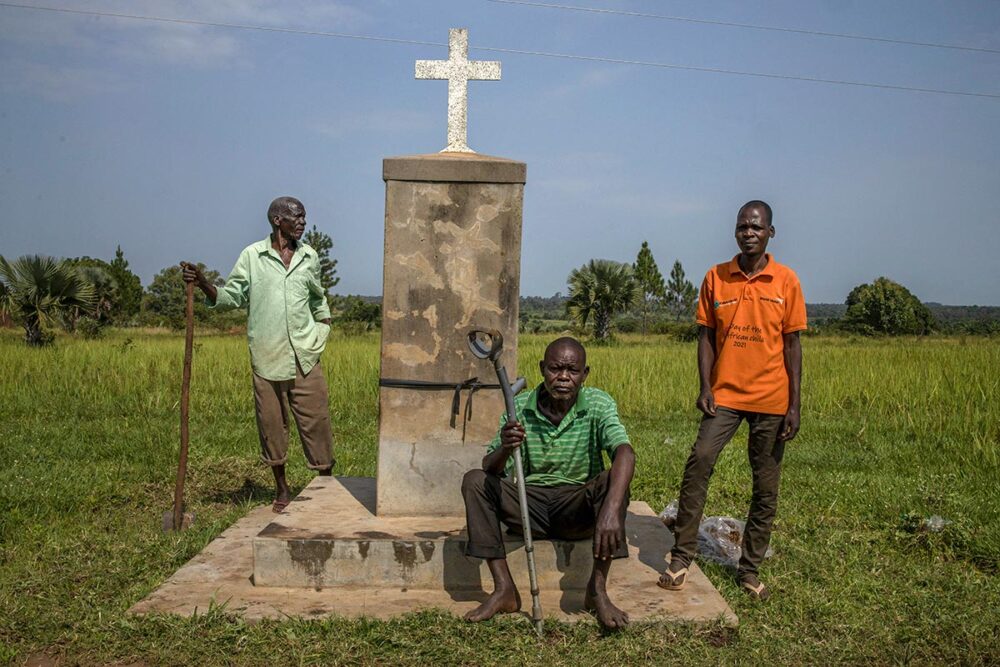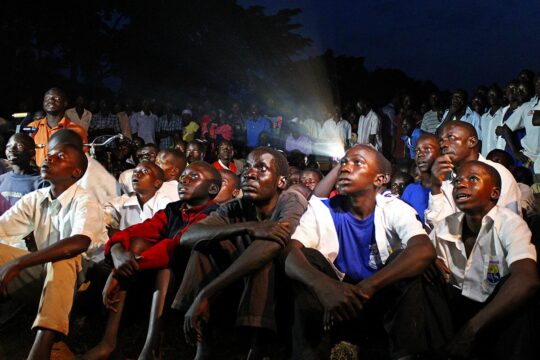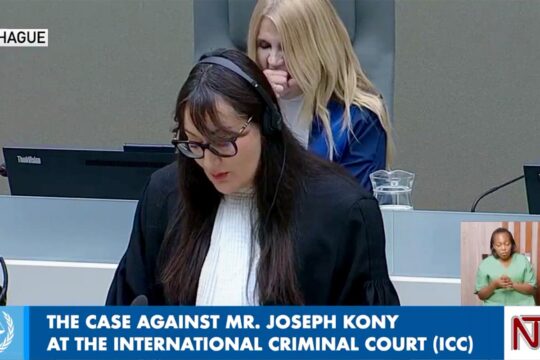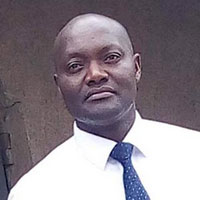Gulu was once the epicentre of a two-decade long armed conflict, with thousands of helpless internally displaced persons roaming the dirty, dusty streets. Some 350 km north of the capital Kampala, it is now slowly gaining prominence as a regional commercial and administrative hub.
Dragged into a flash-back, Gulu city hosted from September 9 to 11 a public video screening of the confirmation of charges hearing in The Hague, Netherlands, in the case of Lord’s Resistance Army (LRA) rebel commander, Joseph Kony. At least three local radio stations were designated by the International Criminal Court (ICC) outreach programme to reach the listeners in their local Luo language. The Acholi region faced the wrath of an armed conflict that left over 100,000 killed according to the UN, as well as thousands of young boys and girls abducted and conscripted into rebel ranks as fighters, forced labourers and sex slaves.
On the first day of the hearings, people began streaming into the iron-roofed hall to their seats on wooden chairs at Gulu Senior Secondary School. By 11.00 am local Ugandan time, they were around 200 persons – former victims, some bearing scars from gunshot wounds, having had family members wiped out, their means of livelihoods decimated. They had all come to attend the public video screening of the hearing on Kony, whom some remember in his childhood was a member of their community before turning against them.
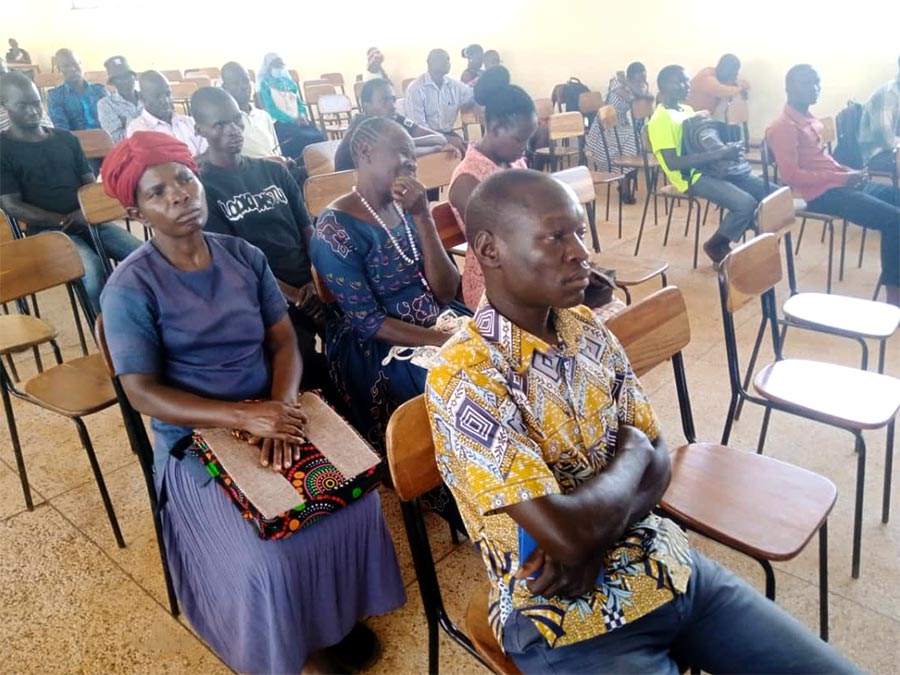
Memories of Kony’s early days
“Kony lived at the home of my grandfather. He would join my mother, late Queen Ochola, to brew the local beer,” remembers Stephen Ocaya, a 38-year-old father of three now working as a data entry officer in Gulu city. He recalls the early days of Kony at the home of Justice Juma Opwonya, Ocaya’s grandfather, in the neighbouring district of Pader. “My grandfather used to tell me that I was a stubborn boy, that whenever my mother and Kony went to the garden to collect food or water from the well and people from the village came in their absence, I would show them where the brew was kept. They would drink it and leave without paying. When my mother and Kony came back, they would find the brew jar empty and no money. Kony would always whip me, and I cried,” he recalls.
When the altar boy Kony grew into adulthood and became a village preacher in 1987, he started his spiritualism at the home of Opwonya. “When Kony would pray, he would smear people’s faces with brown soil on their foreheads and all was peaceful,” Ocaya recalls from the accounts of his family and neighbours. “When government became hard on his preaching, he started forcing people to join him and as he was relocating to the jungle, he took alongside him other people. Among them was our elderly neighbour Ojara Latyet, who died because of the heavy load he was forced to carry for a long time.”
Acholi Kingdom court sentence
In 2015, the grandchildren of late Ojara took the family of Justice Opwonya to the traditional Acholi Kingdom court and won the case against Kony, culturally a family member of Justice Opwonya because he was raised in his family. Kony was convicted in absentia for the murder of the elderly neighbour, and Justice Opwonya’s grandchildren were made to compensate Ojara’s family with five cattle and 5 million Ugandan shillings (about USD1300).
“In Acholi Kingdom tradition, if a family member or a person raised in your family commits a crime against any member of the community, the concerned family must compensate the family of the victim. Our family complied and compensated Ojara’s family on behalf of Kony,” Ocaya explains. But Ocaya also explains that at the age of six, with his elder brother Okot, they were amongst thousands of residents who commuted daily from the suburbs to the city centre for protection against LRA rebel attacks, as villages were considered unsafe.
Emily Apio was among scores of babies strapped on their mothers’ backs during the daily evening flights of night commuters seeking shelter. Ocaya and Apio would later get married in a traditional ceremony in 2012 and are still together in Gulu city with their three children.
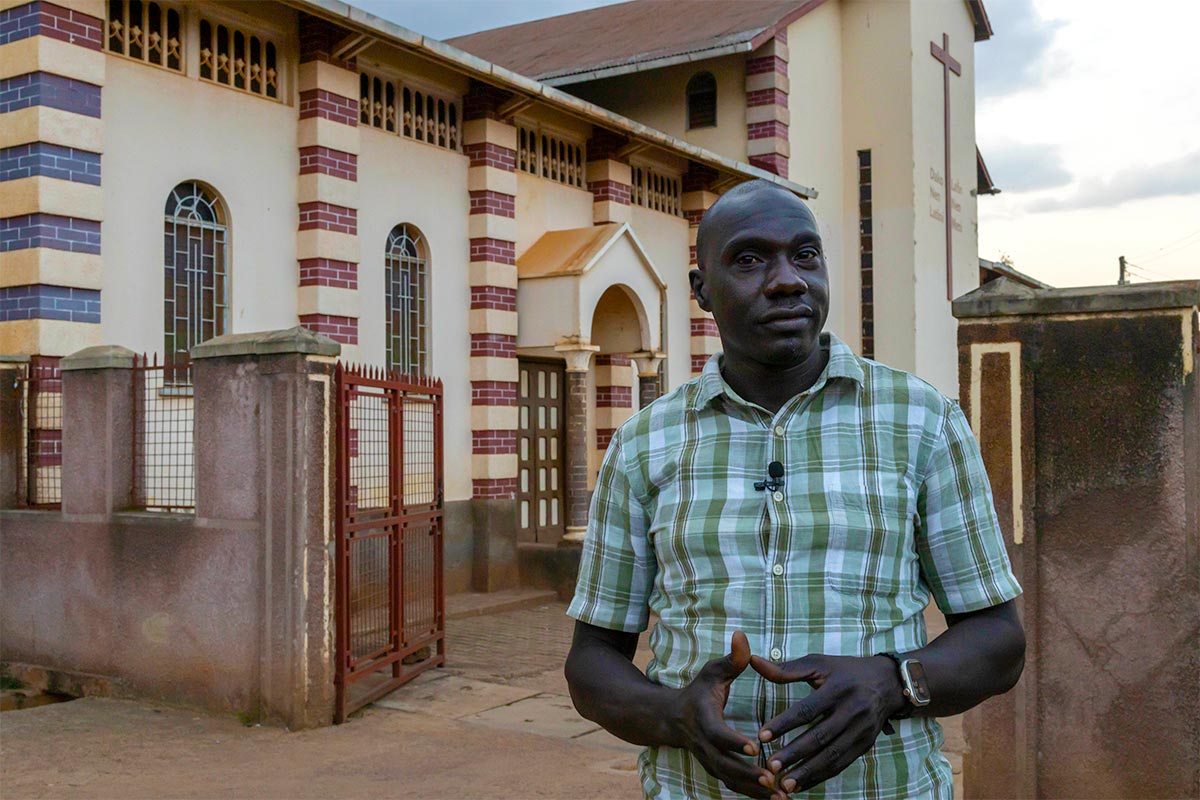
“Kony must be tried, sentenced and made to compensate us”
It is because of the precedent set by the traditional Acholi justice system and the national judicial mechanism that many victims of Kony and his LRA outfits have keenly followed the case against Kony before the ICC. However, unlike Ocaya Latyet’s family, most of the people attending the ICC video screening at Gulu Secondary School are still waiting for compensation and justice.
“I lost 13 family members due to Kony. Two of them were my children. I am homeless. All was taken, including goats,” says Alice Akello, 58, at the public viewing. “Kony must be tried, sentenced and made to compensate us. If he cannot compensate us, government should compensate us.”
“It gives us hope that all is not lost”
“We suffered a lot under Kony. There is no family in Acholi that did not lose a person,” Rebecca Ateng, a widow of 66, tells Justice Info in Gulu ahead of the public video screening. “We long thought this case (Kony) had been forgotten but it gives us hope that all is not lost and there are efforts to have him held accountable,” adds Ateng, a resident of Lukodi village where the rebels killed about 60 community members.
Another survivor, 34-year-old peasant farmer Richard Ochola, tells Justice Info that “bringing the hearing to Gulu is a sign that the ICC values the victims of this war”. “What hurts us is that Kony can never compensate us for what he did. We can only be consoled by the fact that he has been tried and convicted, which we wait to see,” he adds.
A re-awakening call?
The ICC, in its announcements prior to the event, tried to make it clear: “This is not a trial but a public hearing to decide whether there is enough evidence to send the case to trial.”
But to Dennis Ojwee, a Gulu veteran journalist who covered the LRA armed conflict for over two decades for state-owned media The New Vision, the public video screening made victims believe it was a trial against the LRA leader and that justice and compensation is in sight.
“The whole public screening of the case is confusing the victims. They think it is a trial, yet it holds less significance to the victims,” Ojwee tells Justice Info. “The public video screening is opening the old wounds when some of the victims were painfully moving on and healing from the trauma.”
“I know some people may not be comfortable hearing this. These public screenings may even be a re-awakening call. Some of the former LRA fighters live in the communities and those still in the bush, you never know, could be watching and listening to what is airing. ICC should take caution when planning such activities, because it could be re-awakening a conflict that was coming to an end,” he added.
“Without Kony being present in court to answer the charges and with the ICC insisting they cannot try him in his absence, it appears a joke to stage public screenings of this nature because they are not helping the victims,” believes Ojwee, who was attending one session out of curiosity.
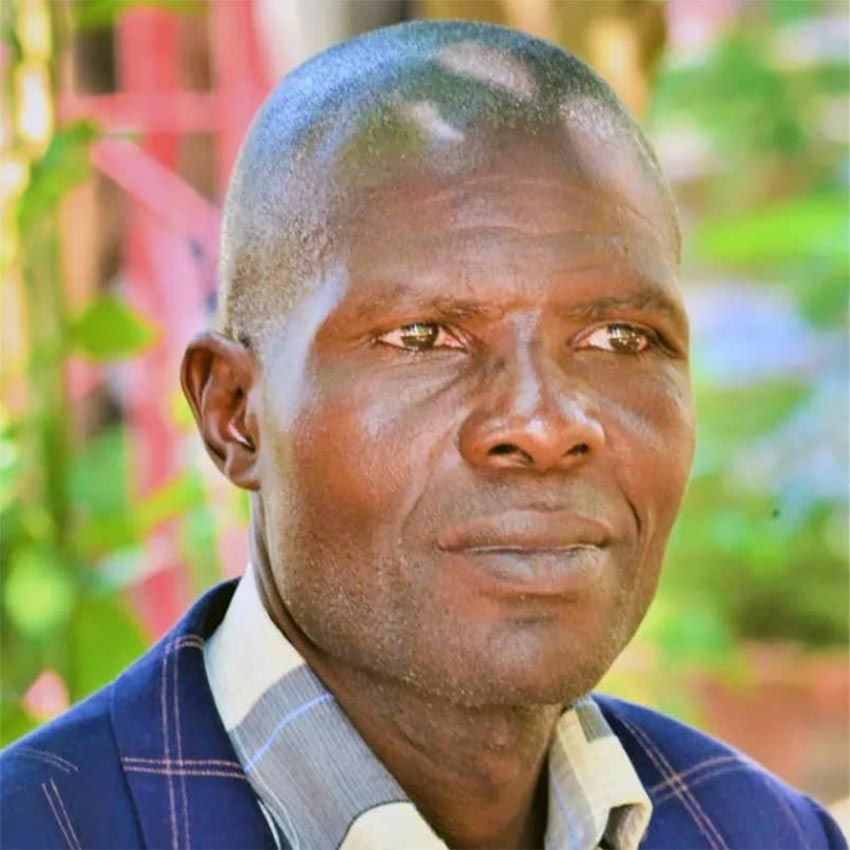
“Our dream is to have justice”
Despite the challenges of Kony’s trial at the ICC, the Gulu-based War Victims’ and Children Networking – a non-profit organisation started in 2016 by a group of men and women who came out of LRA captivity – says they will continue to champion their rights.
“Our dream is to have justice,” says Angel Stella Lanam, the group’s executive director. “Even in absence of justice, our work will continue majorly in providing livelihood support for the victims, giving medical assistance to victims with bullet wounds still lodged in their bodies, giving financial support to groups of victims, and provision of educational support to children born out of rebel captivity.”


